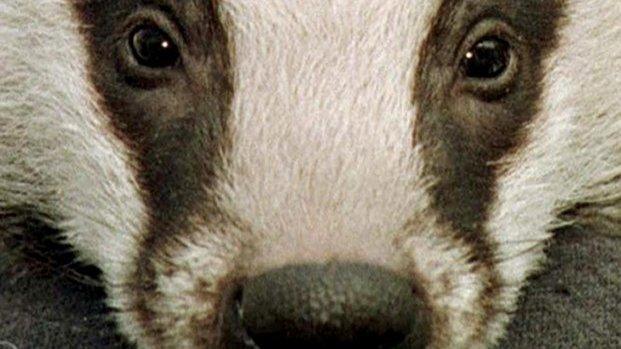Badger cull to begin in NI to combat bovine TB
- Published
The badger cull in Northern Ireland is different to what is happening across the UK and Ireland
Northern Ireland is to start a limited cull of badgers as part of a research project to combat a disease in cattle that costs the taxpayer £30m a year.
Despite a long-standing eradication programme, bovine TB still affects about 6% of cattle herds in Northern Ireland and it is on the rise.
When cattle get the disease, none of the herd can be moved off the farm unless it is to the abattoir.
Cattle that test positive are removed, culled and farmers are compensated.
A female badger and her cub filmed in County Down
There has been a long debate about the extent to which the disease in cattle is linked to badgers, which share a similar strain.
There is no definitive evidence of whether badgers infect cattle, or the other way round.
For the last year, Northern Ireland's Department of Agriculture has been trapping and testing badgers in a 100sq km area between Banbridge and Rathfriland in County Down.
It is part of a five-year research and vaccination project.
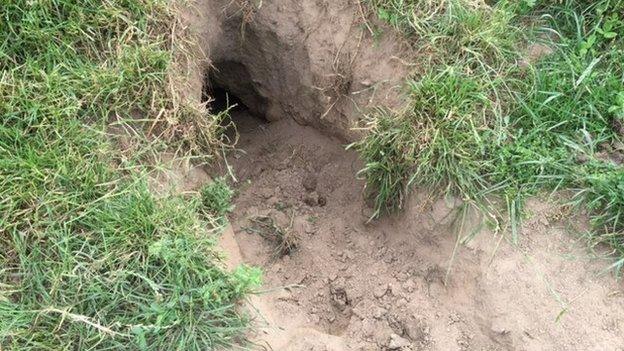
One farmer said his herd grazed in fields in which there are badger setts
Up until now, trapped badgers have been vaccinated and released. But, from this month, any badger that tests positive for bovine TB will be killed by lethal injection.
About 280 unique badgers were trapped last year.
The authorities will not yet say how many had bovine TB, but a separate roadkill survey shows that about 17% of the dead badgers tested had the disease.
Robert Newell farms 165 beef and dairy cattle in the County Down pilot area.
His beef herd contracted bovine TB last September. That means he has not been able to move any of his animals off the farm unless they are going to the abattoir.
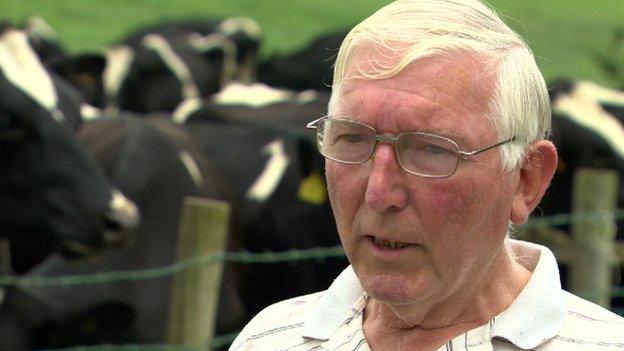
Robert Newell, who farms 165 beef and dairy cattle in the pilot area, supports the cull
He supports the targeted cull.
"I'm happy they're doing this, it's high time it was done," he said.
"We'd have a lot of badgers about the farm, a lot of them are healthy, but the odd one would be sick."
He said his beef calves that contracted Bovine TB were isolated from other cattle on the farm but were born and grazed in fields on which there are badger setts.
He believes they contracted it from the wildlife.
With the movement of animals restricted, Mr Newell has to hold extra stock on his farm. That means more food, housing and the renting of extra ground for grazing.
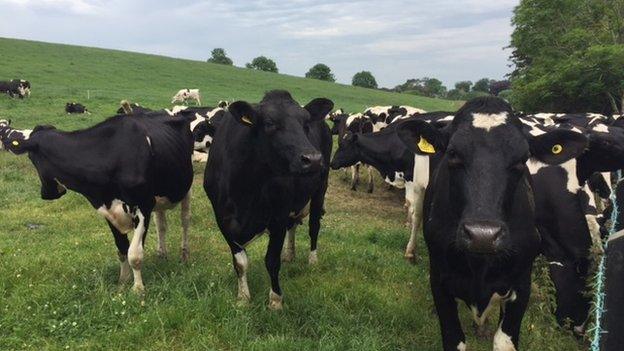
There has been a long debate about the extent to which TB in cattle is linked to badgers
There is international interest in the project as it is different to what is happening across the UK and Ireland.
England is involved in a controversial cull with the free shooting of badgers. Wales has a vaccination only policy. Scotland is bovine TB free and the Republic of Ireland is culling badgers in disease hotspots.
Northern Ireland's chief vet Robert Huey said understanding any linkage between bovine TB in badgers and cattle is a "very important piece of the jigsaw" and accepts that what Northern Ireland is doing is a form of "cull".
"It's consistent with what we're doing in cattle," he said.
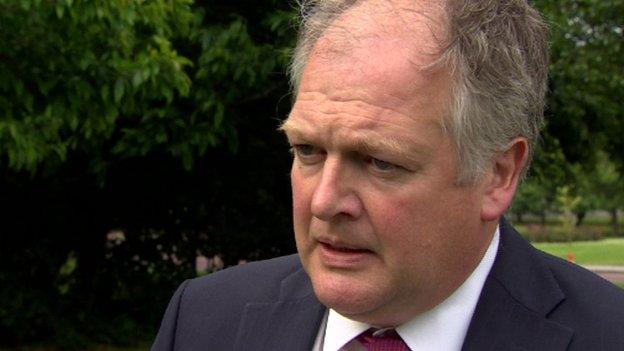
Northern Ireland's Chief Vet Robert Huey accepts what is happening is a type of cull
"What we do with cattle is that we test and, if animals test positive, we remove. It's the exactly the same thing we're doing for the badgers. What I like is the consistency of the approach."
Northern Ireland's only badger lobby group is also supportive of the research pilot.
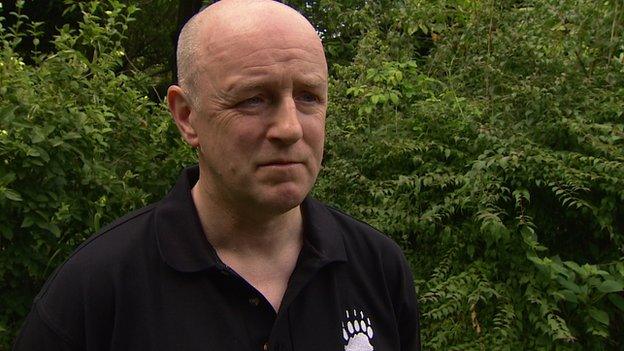
Peter Clarke of the NI Badger Group said the project was a "proportionate" approach
Peter Clarke of the NI Badger Group said they back it because it is based on science rather than the "Gatling gun" approach that was taken in England.
He said the scheme is "proportionate, has buy-in from everyone and at the end of the day, what we all want is healthy cattle and healthy badgers".
- Published9 September 2014
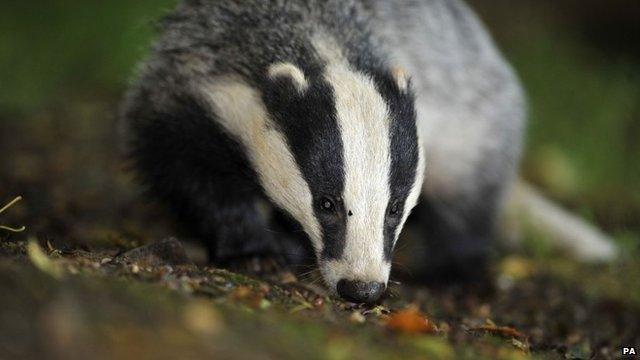
- Published2 September 2014
